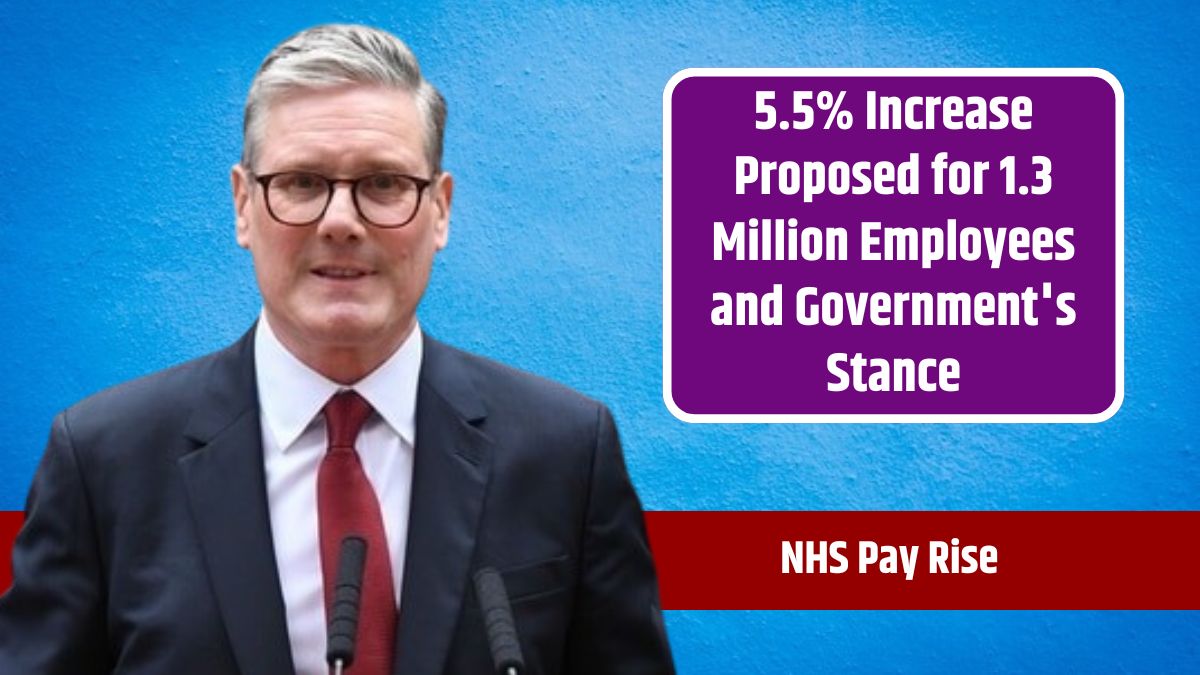The NHS pay structure is a complex system, taking into account factors such as role, experience, location, and responsibilities. In 2024, over 1.3 million NHS employees are at the center of a significant discussion about their wages. A 5.5% pay rise has been recommended, sparking both optimism and concern among healthcare workers. This article seek into the details of this recommendation, the government’s stance, and what it means for the future of NHS staff.
NHS Pay Rise
The National Health Service (NHS) is the backbone of the UK’s healthcare system, employing a vast and diverse workforce. This workforce includes doctors, nurses, midwives, paramedics, and support staff who are crucial in delivering healthcare services across the country. With over 1.3 million employees, the NHS is one of the largest employers in the UK.
In recent years, there has been growing concern over staff shortages, increasing workloads, and pay disparities within the NHS. These challenges have led to calls for better pay and improved working conditions to attract and retain skilled healthcare professionals. In response, the NHS periodically conducts pay reviews, which have led to the current recommendation of a 5.5% pay rise for 2024.
5.5% NHS Pay Rise
The proposed 5.5% pay rise for NHS employees is seen as a significant step in recognizing the hard work and dedication of healthcare workers, especially in light of the COVID-19 pandemic’s challenges. This pay rise would apply to all NHS employees covered by the Agenda for Change contracts, encompassing most NHS staff.
If implemented, this would be one of the most substantial pay increases in recent years, addressing wage stagnation and helping employees cope with the rising cost of living. The proposal has been widely welcomed within the healthcare sector, with many seeing it as long overdue recognition of the critical work NHS staff perform.
However, some healthcare professionals and observers are cautious about the adequacy of the 5.5% increase. While it’s a positive move, there are concerns that it may not fully address deeper systemic issues within the NHS, such as persistent staff shortages, burnout, and the growing pressure on existing staff. Critics argue that a more comprehensive approach, beyond just pay increases, is needed to ensure the long-term sustainability and efficiency of the NHS.
Government’s Stance
The UK government plays a pivotal role in deciding the final outcome of the NHS pay rise recommendations. While the NHS Pay Review Body (PRB) has put forward the 5.5% increase, it is up to the government to approve, modify, or reject the proposal.
Historically, government responses to such recommendations have varied, often influenced by broader economic considerations, including budget constraints and fiscal policies. The Treasury, which oversees public finances, carefully assesses the financial implications of any proposed pay increases, weighing them against the overall economic situation.
The government’s decision will need to balance rewarding NHS staff adequately with maintaining fiscal responsibility. This decision is particularly challenging in the current economic climate, where inflation and public sector spending are key concerns. The outcome of this decision will have significant implications for NHS employees and the future of public healthcare in the UK.
Broader Implications
The issue of NHS pay has sparked a wider public debate, with many arguing that investing in NHS staff is crucial for maintaining high-quality healthcare services. Supporters of the pay rise believe that improved salaries and working conditions are essential for attracting new talent to the NHS and retaining experienced staff. They contend that this investment in the workforce is necessary for patient safety and the overall effectiveness of the NHS.
The proposed 5.5% pay rise, if implemented, could significantly impact the lives of over 1.3 million NHS employees, providing them with much-needed financial relief and recognition. However, the final decision remains with the UK government, which must consider the broader economic context and the long-term sustainability of public sector spending.
The proposed 5.5% NHS pay rise for 2024 is a crucial development for healthcare workers in the UK. While it offers hope for better recognition and financial support, the final outcome depends on the government’s decision, which must balance fiscal responsibility with the need to support NHS staff.
The pay rise has the potential to improve morale, aid in recruitment and retention, and ultimately enhance the quality of healthcare services across the nation. However, the broader challenges facing the NHS, including staffing and workload issues, will require continued attention and comprehensive reform.
FAQs
What is the proposed NHS pay rise for 2024?
A 5.5% pay rise has been recommended for NHS employees.
Who will benefit from the NHS pay rise?
Over 1.3 million NHS employees covered by Agenda for Change contracts.
What factors influence the government’s decision on NHS pay?
The decision is influenced by economic considerations, including budget constraints and inflation.
Will the 5.5% pay rise solve NHS staffing issues?
While the pay rise is positive, deeper systemic issues like staffing shortages may require additional reforms.
When will the government decide on the NHS pay rise?
The exact timeline for the government’s decision is not specified, but it is eagerly awaited by NHS staff and the public.
